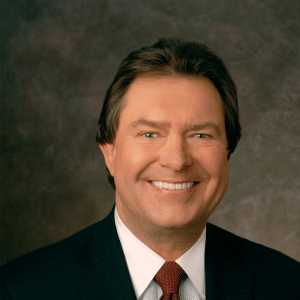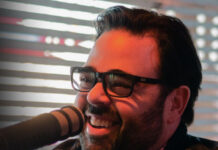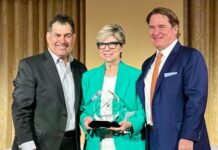
Former CBS Radio CEO Dan Mason will be a keynote speaker at Radio Ink’s 7th annual Hispanic Radio Conference next week in Fort Lauderdale, Florida. Mason has been one of radio’s most respected executives for decades, and to hear him speak about Hispanic radio and programming in general is going to be very special for those who attend the conference.
We spoke to Mason last week to get a sneak peek at what he might talk about at Radio Ink’s Hispanic Radio Conference when he’s interviewed by SBS EVP/Programming Jesus Salas.
RI: Has radio been doing a good job of keeping up with the Hispanic format?
Mason: It’s like a lot of formats. In its early days, it was on AM radio, and a lot of not-so-good AM radio facilities that were kind of also-rans way down on the ranker. Then it got to FM. If you take a market like Dallas, where Univision and CBS Radio had two really nice FM facilities, as far as technical facilities can be, that just expands the market like crazy. You look at the CBS facility, the FM in Washington, DC, and now you look in New York and there are two or three nice FM facilities there. It wasn’t like that in the ’70s. You look at the growth over time, and probably as we go forward, especially in the high-Hispanic-population markets, it’s inevitable that we’ll see more go that route as the population continues to grow.
RI: Hispanic listeners skew very high in digital and social. How can radio take advantage of that?
Mason: The latter you mentioned, on social, what I have always seen within the Hispanic format is that the population of the Hispanic listener base always endears themselves to the local radio station so well. Radio stations, by their own nature, are the biggest social machine that there probably ever could be. I see that. When you’re in a Hispanic radio station, you see the communication and the listeners of the radio station is far beyond, I think in my opinion — maybe there’s a lot of program directors of Rock stations that might disagree with me — but it’s different. It’s a lot different. The communication levels between the audience and the radio station, it’s a lot more intimate. It’s a lot more personal. There are reasons for that. I think probably that the radio station has almost become the communication nerve center for the Hispanic population in that market. Take that and extend it out one more, to social media, then the radio station has a leg up in that category and there’s great opportunity for the radio stations to excel there and get a head start in the area.
RI: Do you believe advertisers are using Hispanic radio in proportion to the ratings they pull?
Mason: That’s a big argument. I’ve got to tell you, take New York for example, and I haven’t seen any recent Miller Kaplan reports, but about a year ago, when Mega would get great ratings in New York City, they were always hanging around the top three or so in billing in New York City. So when they had those kind of ratings, from my viewpoint, they certainly got the revenue that was justified for those ratings. I know there’s a lot of controversy around that, but they were certainly pulling revenue out of New York, that the ratings justified. I would assume it was that way in Los Angeles too.
RI: What can the industry do to better serve Hispanic listeners and the Hispanic community?
Mason: I think the industry has done a terrific job doing that. Wind the clock back about 18 years ago in Washington, DC as that Hispanic population base grew, there was no FM of any importance serving Washington, DC. Now you look at El Zol, they’re planted pretty well in the community in Washington, doing a really good job as a community-based radio station serving the Washington, DC market. In markets where the population is getting larger, I believe that radio has reflected that. In markets where that doesn’t happen, where there is no growth in the population, you might not see that. You take the top 10 Hispanic markets, which would include New York, L.A., Miami, Houston, Dallas and so on, there’s a pretty good base of FM radio stations in those markets that do a really nice job.
RI: Why is it important for people to attend the Radio Ink Hispanic Radio Conference where you’re going to be speaking?
Mason: You always want to keep up on the trends. You network with people. You make contacts with people. You learn about trends. I’ve been going to conferences for 30 years. I was the biggest copycat that ever lived. If some guy in Huntsville had a great idea and I was a program director at Z93 in Atlanta, back in the day, I had no problem ripping that idea off. I was constantly searching for ideas. I didn’t care where they came from. I used them to help my radio station. I had a thirst and a curiosity to know where new ideas were coming from and who was doing what. I didn’t want to stay isolated in a vacuum somewhere. I needed to know what people were doing. You would network with people and you would make contacts, and that’s how you did it. I think that’s kind of lost now, and that concerns me as a program director or as a general manager or as a general sales manager. You can cover all of that quickly for a reasonable cost.
See our full conference agenda HERE
Register for the conference HERE





